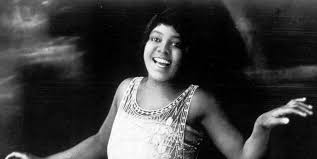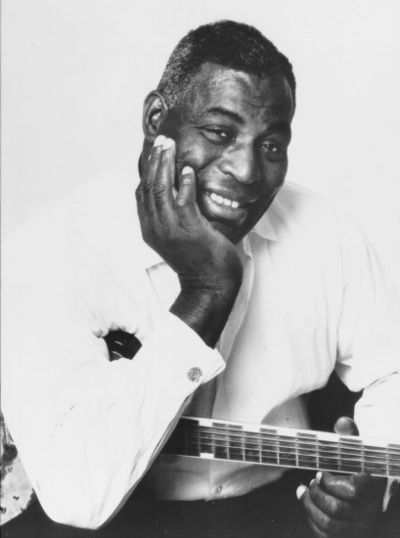An Introduction and History of Blues
The blues music genre was created at the turn of the 20th century. During this time, there were several other black music genres that were popular at the time, such as ragtime music, jazz music, and jubilee quartet groups. All of these genres focused and emphasized the talent and creativity of black musicians and demonstrated how much progress and advancement the black community was making.
While these genres painted the picture of African-Americans moving past slavery and feeling hopeless and downtrodden, the blues was a whole different story. The blues was created in the South, specifically the Mississippi Delta. In this region, many black people were poor, still sharecroppers on large plantations for white landlords, and oppressed through racism and discrimination, and segregation of the Jim Crow South. Blues captured the experiences and sorrows of black people living under these oppressive conditions and allowed the blues musicians themselves to express their emotions and thoughts through music.
Black & White

While jazz, jubilee quartets, and ragtime was embraced by the majority of African-Americans, blues music was not embraced by all African-Americans. Many African-Americans living in the North believed blues music was downtrodden and talked about things of the past. Black people have progressed past that, more blacks are being educated academically and musically, and have formed a sense of black pride through being trained as musicians.
However, black people in the South loved blues music because it told the truth of their own personal experiences and was one of the only music genres that they could relate to. While there was a division between how African-Americans responded to blues music, many white Americans loved blues music. White Americans would define blues music as the official American folk music genre. However, many black people knew this was not the case since black people first created folk music during slavery and were playing the djembe, banjo, and doing patting juba.
It is important to note that blues music is directly descended and influenced by folk music. This needs to be pointed out because white record producers got most of their blues recordings from prisons in the South. Many of the prisoners were black, did hard labor, and worked on chain gangs. These black prisoners sang work songs, which have folk music roots. Wealthy and well known white record producers such as John Hammond and Alan Lomax (pictured to the left) traveled all throughout the South and the Mississippi Delta recording as Hammond described these “unknown primitive songs” and advocating that blues be taken more seriously as a music genre just like European music is. Most of their time was spent in prisons and interviewing these black prisoners about how they came up with these very talented and gifted lyrics and songs. Famous blues musicians that Hammond and Lomax encountered were Howlin’ Wolf and Huddie “Lead Belly” Ledbetter.
Blues Superstars
The most famous and most legendary blues icons include Bessie Smith, Howlin’ Wolf, Muddy Waters, B.B. King, and Huddie Ledbetter. All of these artists were deep in their singing and expressions when recording their songs. They all were from the South and experienced many forms of oppression that black people living in the South did at the time, such as segregation, racism, Jim Crow culture, a corrupt criminal justice system that was a modern form of slavery used to contain free black men, were from poverty stricken families and towns, and were surrounded by limited economic/job opportunities for black people (many black people still worked as sharecroppers on large plantations picking cotton for white landlords for little or no pay). All of these experiences and conditions built the foundation of blues music.


Commodification of Blues Music and the Connection to Race
As stated earlier in this post, blues music was made popular by white record producers that were very interested in looking for a new style of music. While jazz and swing were very popular up in the North and being played on Broadway and in major cities in the North and New Orleans (which was a major metropolitan Southern city), they were eager to see what black people were creating in the South. What they found was raw and pure talent of black people singing about the true black experience and realities of racism.
These white record producers would record tese blues artists and make records that were produced by the record companies. However, many times many of the songs were not given credit to the blues singers who actually wrote these songs. So, when white culture all around the country were listening to these blues songs, they didn’t know the names of the people who sang the songs. This means that while blues music was getting commercialized by white record companies, labels, and producers, and making millions of dollars, blues icons such as Howlin’ Wolf, Muddy Waters, Lead Belly, and others were not getting paid a lot of money. It is even possible that these blues singers were unaware of just how much white people were buying their records and how much money their songs were worth.
The Legacy & Influence of Blues Music

Blues music is one of the most influential genres of popular music. While blues may not of have as much of a significant impact on black music other than possibly soul music, blues is the foundation and predecessor of rock n roll music. In the 1950s and 1960s, rock n roll would produce icons such as Little Richard and Chuck Berry. However, the stars that white American culture and the image of rock n roll was Elvis Presley, The Beatles, and The Rolling Stones. While white American artist Elvis did not mention his love and influence as much, it was white British groups such as The Beatles and The Rolling Stones that would often give credit to blues singers Muddy Waters and Howlin’ Wolf for having a major impact on their success and style of music. It is interesting that blues singers were not really respected by white Americans and some members of the African-American community, but they were very well respected and treated by white people living in Great Britain and other parts of Europe.
My Opinion and Reflections about Blues Music
I think that blues music has had a tremendous impact on African-American music being taken seriously. While the blues was not the happiest of music genres, I believe it still should be respected and regarded as being one of the many music talents of black musicians and really helped create the foundation of modern popular music.
I was surprised when I learned that many African-Americans at the time did not embrace blues music. While black people were making progress in terms of music and being allowed more academic opportunities, racism still existed everywhere. It does not matter if a black person lived in the North, South, Midwest, or West. Injustice anywhere is injustice everywhere.
I have mixed feelings about the black community not supporting blues music as a whole, but then white people supporting blues and commercializing it/making it popular. I think on one hand black people themselves were not able to make blues music popular because they did not have access or the resources to start their own record companies and make their own records. White people had the money and equipment to do these things. On the other hands, black people get made at white people for taking blues music and “whitewashing” it with artists such as Elvis Presley and The Beatles making many pop hits and becoming international superstars. I think if black people had been more supportive as a community together and listen to blues music just like they did jazz music and jubilee quartet groups, then maybe there wouldn’t have been so much whitewashing of blues music. Blues music could have been more credited to black people, as well as rock n roll being credited to black people instead of white people having more of an influence and impact on blues and rock n roll.

